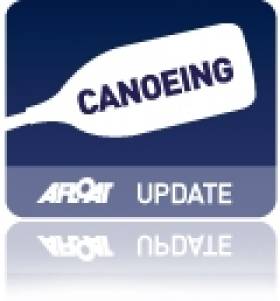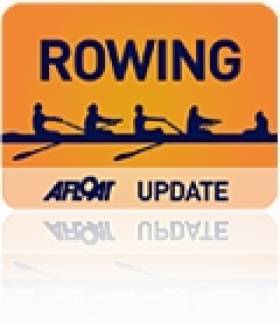Displaying items by tag: blind
Blind Canoeist to Paddle Length of River Shannon for Charity
#canoe – A blind journalist, canoeist and past pupil at ChildVision's national education centre for blind children will paddle the River Shannon in aid of ChildVision this weekend. Wesley Bourke and his paddling partner Aisa Cooper will take on the 360km (225 mile) feat from August 16th-19th, covering 100km per day for the first three days. The challenge will begin at Dowra in County Cavan and cover the counties of Leitrim, Roscommon, Longford, Offaly, Westmeath, Galway, Clare and Tipperary as they make their way to Limerick.
"No blind person has ever done this before but I'm confident we'll not only complete the challenge, but we'll get it done on schedule," said Bourke. "And ChildVision really deserves every support you can give them, and I hope everyone along the route will be generous in supporting them, and us, too."
Wesley was diagnosed with Leber's hereditary optic neuropathy at a eighteen while he was completing an apprenticeship with the Air Corp, leaving him with less than 15% vision. He attended ChildVision's integrated post-primary school, Pobal Scoil Rosmini, to complete his Leaving Certificate. Graduating in 1998 Wesley went on to study International relations at the University of Hull and Kings College London. He now works as a journalist at An Cosantóir, the Defence Forces magazine.
An adventure enthusiast, Wesley recently completed the Devizes – Westminster International Canoeing Marathon with Aisa, paddling over 200km in a two man kayak in preparation for this event. Wesley and Aisa are members of the Celbridge Paddlers Canoe Club, Co. Kildare.
The pair will take to the Shannon in a K2 kayak on August 16th to raise funds for ChildVision, Ireland's only national education centre for blind children. ChildVision works with over 800 families throughout the country providing educational resources and facilities for blind children.
Blind Youngsters Get Going with Rowing
Fourteen visually impaired teenagers from both Rosmini Secondary School and St. Joseph’s Centre for the Visually Impaired took part in a rowing intro afternoon at Dublin Municipal Rowing Centre this week. The aim of the afternoon was to introduce them to indoor rowing as well as rowing on the water and to show the participants as well as their teachers and carers that rowing is an activity that caters for those with visual impairments.The students ranged from being completely without sight to some with partial sight. A number of the group had a visual impairment combined with a learning difficulty. For the group, with the exception of one student from Rosmini, this was their first experience of rowing. Rosmini student Aron O’Dowd, who won a bronze medal at the World Indoor Rowing Championships, is the perfect illustration of this and he spent the afternoon teaching his peers the skills he has learned.
All those who took part in the day thoroughly enjoyed it, and even the four teachers and carers who came along got out on the water for their first time! With the amount of interest from the day I believe there is great potential for Rosmini and St. Joseph’s to develop a link with the sport, whether that be taking up a regular slot at Municipal Rowing Centre or entering teams in the adaptive events at the 2010 Irish Indoor Rowing Championships.
The try it out day also highlighted the use of ErgChatter, a free download from Concept2 which allows the data on the performance monitor (PM3 or PM4) to be spoken aloud through a laptop or PC. It is very simple to use as all it requires is a printer cable that connects performance monitor to one’s laptop or computer. ErgChatter allows the user to choose what data they want to have read out, and at what intervals. It also allows users to set up specific training sessions.
Click this link for Irish Rowing detailsClick this link for the Latest Rowing News

























































